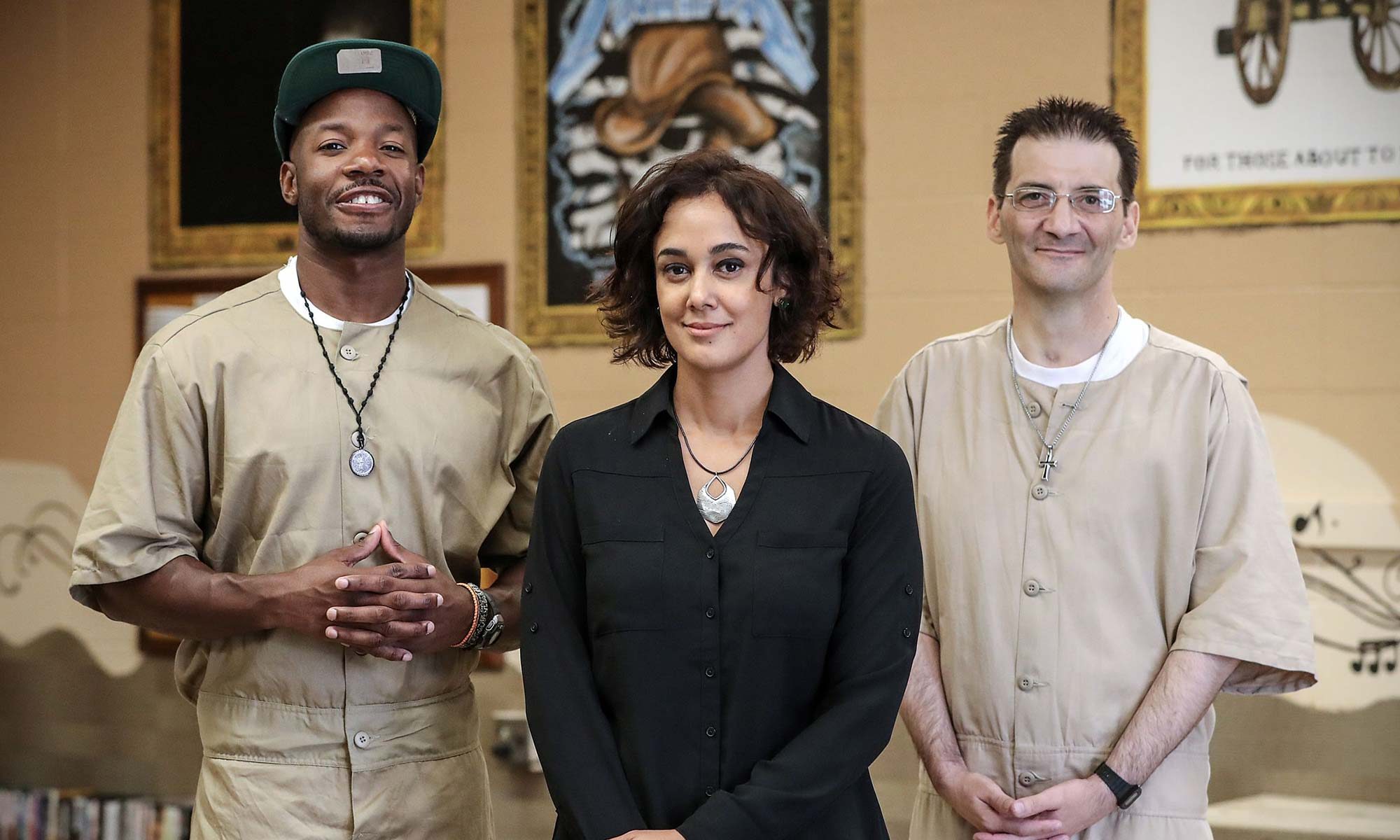Security felt like a breeze with my shiny new volunteer badge. No invisible hand stamp, no running back out to my car because I forgot my driver’s license again. First class of the newest 12-week session, and though I’ve been in multiple times alone, it feels a little different now. This is the first session that I’m leading from the start. I’m on my own.
The shininess of my new badge was a pleasant distraction from my nervousness. I wasn’t sure what to expect, whether most students from the last class would return (I hoped they would) or if new students would join us (I hoped they would). We had gotten into a comfortable rhythm with the small group we had. I didn’t know how things would flow with new members or with a larger group. I debated over how many self evaluations to print for our first class. I settled on fourteen, which I thought was an overly optimistic number.
That evening, fifteen men crowded onto plastic chairs, the circle widening as more and more men entered the room. I was relieved to see most of the guys from our last session had stayed on for this one. Nine new men had crowded in as well, looking expectant and curious, some looking a little nervous as well.
After introductions and a short review of class expectations, we jumped into our first prompt. I chose a popular list prompt, where we start with “I remember” then write whatever comes after that. It’s always been a favorite of mine, and I’ve used it often to get going when I’m feeling stuck. I thought it would be an approachable initiation for those just joining the class, since we had various levels of writers joining us, from those who had never written to some who had been writing since childhood.
New class members and old ones rose to the challenge. I was pleasantly surprised at how willingly the newest students shared their writing. They remembered fourth grade fights, favorite songs, first jobs, and moments of joy, surprise, or profound loss. They reported memories that surprised them, and memories that were nostalgic for times long gone and futures no longer possible. One man recalled imagining in his younger years that this time in his life would be spent with his grandchildren, instead of sitting in a chow hall with dozens of other men every day. Another remembered the joy and innocence of childhood, and his was a written prayer that this innocence would remain in his child longer than it had remained in his own life.
Later, when reflecting on class while preparing to write this post, I decided to get started by trying my hand at an “I remember” prompt of my own. So in the spirit of sharing as openly as these men did, I’ll share my own here.
I Remember
I remember taking freedom for granted. I remember driving by the prison in my hometown as a child and trying to imagine the bodies hidden inside the cinder block walls- what it would look like if the buildings were lifted like a lid, revealing men sleeping in bunks or heads hanging, hovering above their knees. Men sitting on the toilet or avoiding the aged mirror while washing their hands. I remember thinking I’d never survive that kind of captivity; I had believed it was dangerous and soul-sucking and maddening, and I was sure I didn’t have the grit necessary to come out alive. I remember realizing that prison can be every bit as dangerous and maddening, but that it can also be a place of hope. I remember meeting 10 men in an oversized visitor’s room and reading hope in their words. I remember feeling trusted with that hope and feeling like I could be part of it. I remember the lessons they have taught me at each visit. I remember them long after I’ve left them behind. Men in various states of existence, carrying on behind those cinder block walls. Some feeling hopeful. Some feeling forgotten. But I remember.
This is part of a 12-week series that writer Kristina O’Connor will contribute to documenting her progress in the Indiana Prison Writers Workshop.

Kristina: Thank you for doing this. For sharing your feelings with the men in the class. For sharing your feelings with your blog readers. For providing an artistic outlet for people who have been forgotten, overlooked, or scorned. “Even as you do it for the least of these….”